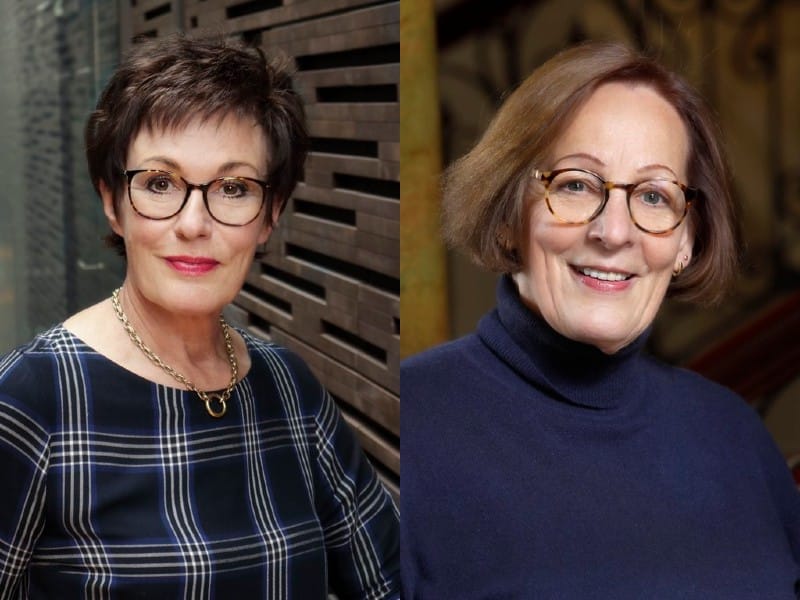Not just the voice – Jury members Waltraud Meier and Deborah Polaski in interview
26 May 2019
Waltraud Meier and Deborah Polaski, Jury members of the Mirjam Helin International Singing Competition, are among the most renowned Wagner sopranos of our time. Here, they tell about the things they keep an eye on in competitions, about the demands of the singing world, and about their thoughts on singing Wagner.

For Waltraud Meier, the voice is just one tool for a singer’s storytelling. “A singer should overwhelm me. It is about finding out what you want to say, and then finding the means to say that.”
The German soprano thinks people often misunderstand the demands of singing Wagner. “A lot of people may think Wagner is only about big voices. That is absolutely not true. It is diverse – you can apply bel canto to it and there is a lot of parlando.” Wagner is all about articulation, Meier says. “The music can change three times within a sentence.”
During her long career, Meier has observed many changes in the opera world. “I am not always so fond of surtitles”, she says. “First of all, the audience thinks they can understand the text, but they might not really connect with the singer. Secondly, it sometimes makes the singers too confident in terms of articulation.”
Rushing with one’s voice and career also worries Meier. “The singing world is sometimes too much like the Olympic Games – you should not just try to get higher and stronger, but to take time and explore something. And sometimes, singers are not given that time.”
Meier compliments the atmosphere of the Mirjam Helin Competition. “You can feel the reputation, and I am happy to be here with these colleagues in the Jury.”
Interpreting colorfully and teaching specifically
Deborah Polaski also applauds the atmosphere of the distinguished Jury: “We are enjoying ourselves.”
In a competition, she keeps an eye on involved interpretation and original ideas. “I listen for the difference between dynamics and color. Piano is not a color – and colors are created in phrases.”
In the era of digital media, young singers have endless possible models they might feel tempted to copy. “Of course it is frightening to say: this is what I think about the piece”, Polaski says. “Only a lot of brainwork and experience in life make the interpretation.”
Polaski thinks that, in a sense, you are born with a suitability for certain repertoire. “Then, you can definitely feed that, but only if the basic quality is there.” With Wagner, it is also a question of personality. “I think Wagner singers have a lot of endurance: you are not a sprinter but a long distance runner. Then, it is about the structure of the voice and to some extent, the body-type – although the looks can deceive.”
The American soprano also stresses that a young singer should ask advice in choosing a role. “If your instinct is not developed enough, you need to do that. The object of the theatre is to sell performances, above all.”
As for teaching, Polaski thinks it should go beyond mastering a repertoire. “Often students get a lot of general advice and not enough specifics.”
Text: Justus Pitkänen
Photo: Heikki Tuuli
